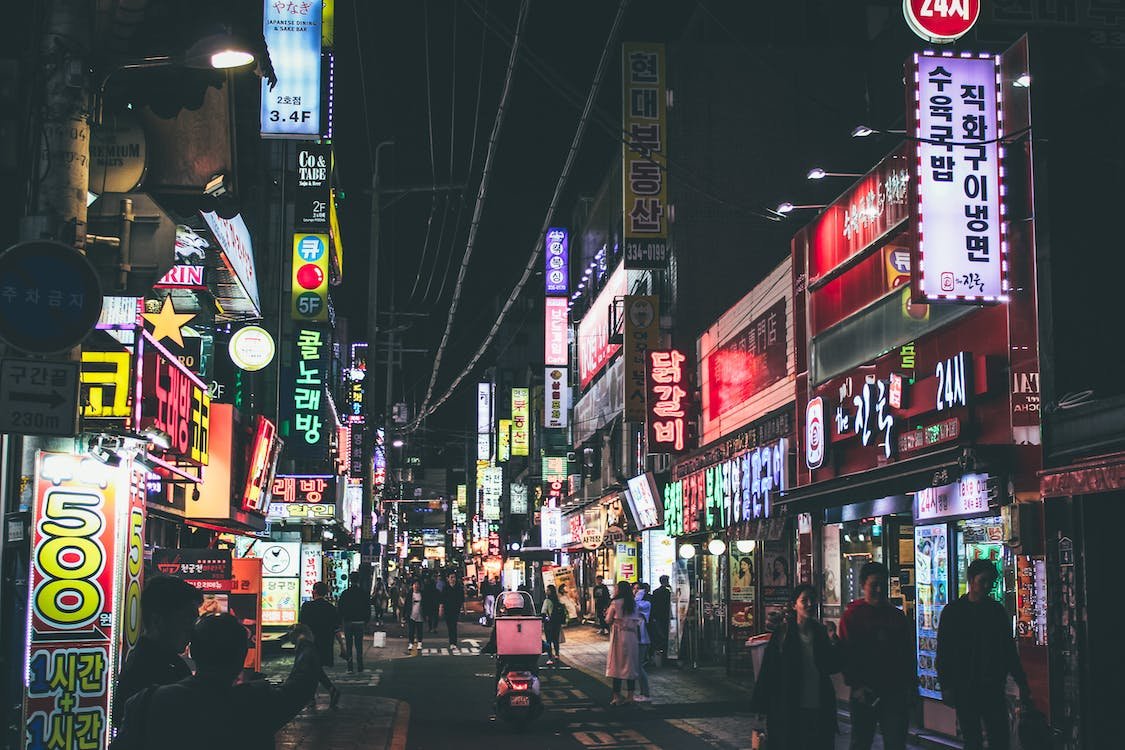By Nyasha Oliver
As a Black woman, clubbing in Seoul, the capital of South Korea, can be an experience. On one hand it can feel strange, with onlookers watching your every dance move hoping to catch a real life You Got Served moment. On the other hand, it can feel familiar when the DJ transitions from a South Korean artist like DPR Live to Megan Thee Stallion, transporting you back to the States while also affirming hip-hop’s global reach. Wherever you end up if you ever visit Seoul, you’ll quickly learn why the capital has been infamous for drawing people from all walks of life to its hip-hop club scene, Black people included. But in order to understand why, we have to go back.
LA List says that spaces like Moon Night Club, a “hip-hop nightclub for Black American GIs in the heart of 1980s Seoul, South Korea” for a better understanding of this infamy. The publication says that:
“After WWII, the U.S. military stationed itself in what is now South Korea and established its headquarters in the capital city of Seoul, specifically in a military compound located next to a neighborhood called Itaewon. From the 1950s onward, Itaewon developed into an area where American soldiers liked to hang out.”
Itaewon’s Moon Night Club was a place for Black soldiers to hear hip-hop music and new jack swing, as well as spread the sounds to the rest of Korea until it closed in the mid-1990s.
As a result of this spread, Koreans began adapting and creating hip-hop of their own, resulting in the subgenre that’s now become a mainstream phenomenon: Korean hip-hop.
“The exposure of American media led to a high rate of hip-hop fans in South Korea who have emulated Western [hip-hop] culture which in turn has created this cycle,” says Khia Monroe, who has spent countless summers in the heart of Gangnam, one of the 25 districts in Seoul. And it’s true.
Once hip-hop was in the ears of the people in Korea a new subgenre emerged. Additionally, clubs like nb2, Owl Lounge and Octagon–known for playing everything from 1990s hip-hop music to the most recent cuts–became hot spots, while reality competition shows like Show Me The Money and Unpretty Rapstar helped push hip-hop to the general public in Korea. Which brings me to clubbing.
The neighborhoods in Seoul today can be compared to the boroughs of New York City: the underground scene of Hongdae neighborhood emulates the youthful counter-culture of Brooklyn, Itaewon’s multicultural crowd feels like Queens and the lavish district of Gangnam can be likened to the Upper East Side. There’s a space for everyone, and while the scenes themselves may be physically different, the music and atmosphere are familiar. And rest assured, you’ll be hearing hip-hop.
“My friends and I go to clubs like Octagon around 1AM,” says Khia of the popular high-end club in Gangnam. “One time, we got an invitation to a private VIP booth at Club Octagon during one of their hip-hop nights and [got to experience the lavish] lifestyle that party goers enjoy.”
On the other side of Seoul, Sam–a London native–was club-hopping with her friends to the popular hip-hop spots Sinkhole in Hongdae and Madholic in Itaewon. The latter of the two is a popular hip-hop club with “a youthful vibe,” that Medium describes as the perfect place to “blow off steam and throw it around the dance floor until 8 am.”
The influence of hip-hop culture in Seoul has not put a stop to stereotyping, however. Incidents of cultural appropriation and blackfishing take place regularly, and Sam and Khia have experienced the effects firsthand. Sam recounts being approached by a man speaking to her in AAVE and using Black hand gestures, while Khia remembers being described as “exotic”–which we’ve learned is nowhere near a compliment.
There have also been incidents at places like Burning Sun, a nightclub which involved several Korean celebrities in an alleged assault and prostitution scandal, as well as the Itaewon Halloween crowd crush, where severe overcrowding led to many people being killed, have rightfully had an impact on Seoul’s clubbing scene as of recently.
Hopefully with the passage of time and the introduction of more preventable measures the space will become more populated again and everyone can experience them safely. And if you’re a Black woman traveling to Seoul anytime soon and want some advice, here’s what Kia and Sam say:
From Sam: “I’d advise anyone going for the first time to always go with someone, have your wits about you and have fun!”
From Khia: “My only advice is to not club on an empty stomach!”


